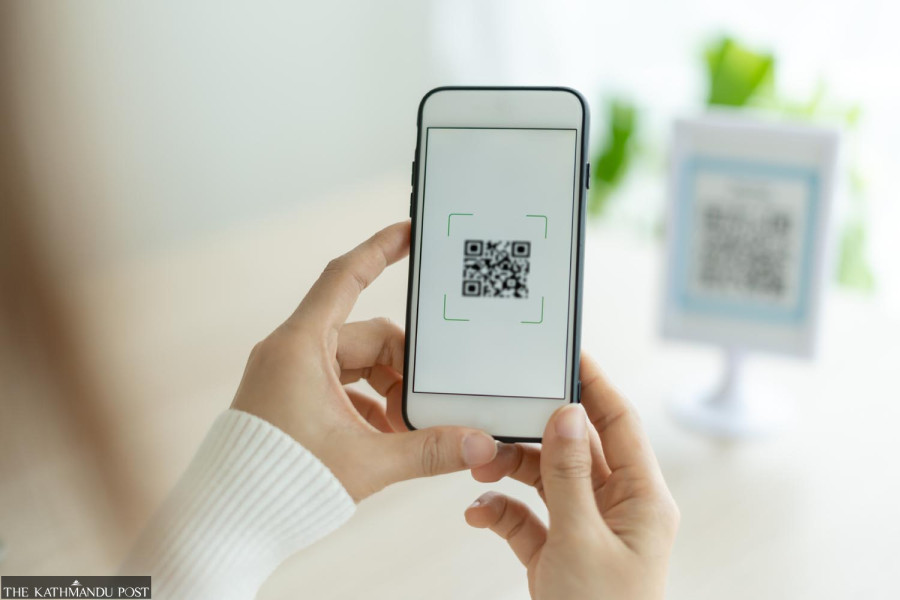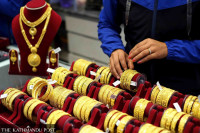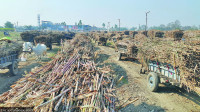Money
QR code payment system for Nepalis in India delayed
When Nepalis start paying via QR code in India, a certain commission should be paid to Nepali banks for this service, and it’s unclear who will pay.
Post Report
The scan and pay system for Nepali travellers in India planned for this December will likely be delayed due to a commission issue, according to an operator privy to this matter.
“In India, no charges are levied when paying through the quick response (QR) code. But when Nepalis start paying via QR code in India, a certain commission should be paid to Nepali banks for this service,” one payment operator said, wishing not to be named.
“Now, who will pay the commission as merchants provide the service without charges?”
There is no regulation regarding commissions or charges to be paid to Nepali banks on every transaction.
In Nepal, when Indian travellers pay through the QR code, minimal standard charges of 1.95 percent are applied to merchants per transaction upon receiving payment via UPI-enabled payment apps.
Consumers or merchants are not charged for payments from UPI-linked bank accounts. The UPI, or Unified Payments Interface, is an instant real-time payment system developed by the National Payments Corporation of India (NPCI) to facilitate inter-bank transactions through mobile phones.
In India, when a wallet user makes a payment, the merchant acquirer pays the interchange fee to the wallet issuer. Whether the acquirer will pass this fee to the merchant has not been determined.
The interchange fee of up to 1.1 percent applies only on transactions above IRs2,000 to online merchants and large retailers. Furthermore, interchange fees do not apply to peer-to-peer (P2P) payments and small businesses in the P2PM category.
India has mandated a zero-charge framework for UPI transactions from January 1, 2020. This means that UPI charges are nil for users and merchants alike.
This issue in Nepal has delayed the activation of QR codes for Nepali travellers in India. This is a major hurdle to Nepalis making QR code payments in India, the source added.
Operators say multiple discussions have been held regarding the commission issue, including the amount or percentage of the commission to be provided to Nepali banks and who will bear the cost.
But there has been no logical conclusion so far.
“India’s central bank is also discussing the issue with banks there,” according to the operator.
“So it will still take a few months for Nepalis to make QR code payments in India.”
Nepal is technically ready to start QR payments in India with approval from Nepal’s central bank.
However, unless the Indian side gives a go-ahead, Nepal cannot start the QR payment in India.
Nepal even has already conducted a successful trial transaction in India.
In September, Nabil Bank trialled transactions through its mobile banking app in Mumbai, India, and achieved a successful result.
The Reserve Bank of India needs to provide approval for payment system operators, and banks also need to show their readiness to start the service, operators said.
On June 1 last year, Nepal and India signed a memorandum of understanding for cross-border digital payment to ease digital transactions for business people, students, and tourists from both countries.
Nepal Clearing House Limited (NCHL) and National Payment Corporation of India (NPCI) International Payments Limited signed and exchanged the memorandum of agreement on behalf of their respective organisations in New Delhi, India.
The digital remittance under cross-border digital payment service initiated through a government-to-government agreement has also been delayed from the Indian side.
NCHL agreed to a cross-border digital remittance service. However, a year after the agreement, the service has yet to start.
NCHL has a 10 percent investment from Nepal Rastra Bank and 90 percent from other commercial banks.
The central bank handed NCHL the work of establishing and operating a national payment switch and card.
In September last year, Fonepay Payment Service Ltd, Nepal’s largest payment network and NPCI International Payments Ltd (NIPL), the international arm of the National Payments Corporation of India, agreed to launch the first QR code-based payment solution between Nepal and India.
On March 1, Indians in Nepal were allowed to make payments through their mobile phones.
The development was hailed as a milestone in cross-border digital payment between Nepal and India, facilitating the students and people going to India for medical purposes.
The QR code system has become a boon for tourists, especially those from India.
It has reduced the hassle of carrying cash as the Nepal government has banned all Indian notes above the denomination of 100.
Fonepay said that initially it received transactions of Rs2–3 million daily. Now it reaches around Rs7–8 million daily on weekends or during the tourist season and around Rs5 million daily on normal days.
Indians making QR code payments in Nepal are gradually growing as many Indians still do not know about the service availability in Nepal, said Fonepay.
Nepal Rastra Bank has imposed rules and regulations for banks to set a daily transaction limit of IRs100,000 while making QR code payments in India.




 21.71°C Kathmandu
21.71°C Kathmandu












